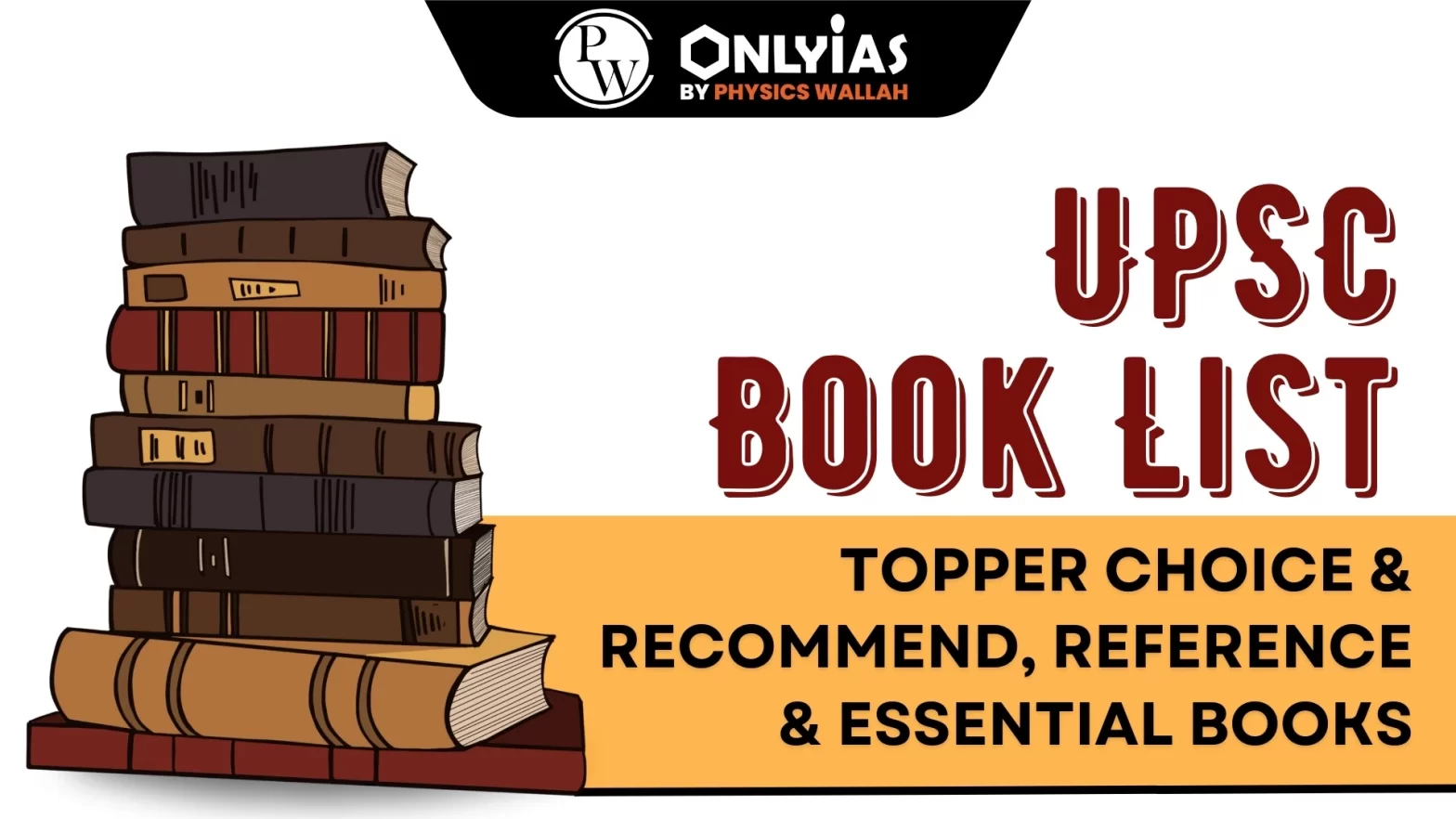![]() PWOnlyIAS
PWOnlyIAS
![]() December 18, 2023 05:05
December 18, 2023 05:05
![]() 1511
1511
![]() 0
0
Academic Books for Foundation, Non-Academic for Inspiration. Build Knowledge, Enhance Skills, and Foster a Holistic Approach with our Comprehensive UPSC Book List.

Preparing for the UPSC (Union Public Service Commission) examination is a complete manner that calls for diligence, strategic making plans, and a multidimensional method. The UPSC examination includes three stages
| Stage of Examination | Description |
|---|---|
| Stage 1 | Preliminary Examination |
| Stage 2 | Mains Examination |
| Stage 3 | Personality Test |
| Book Title | Author | Content Focus | Relevance to UPSC Exam |
| “India’s Struggle for Independence |
|
|
|
| “Indian Polity” |
|
|
|
| “Indian Economy” |
|
|
|
| “Geography of India” |
|
|
|
| “Environment and Ecology” |
|
|
|
| “Indian Art and Culture” |
|
|
|
| “Oxford School Atlas” |
|
|
|
| “Introduction to the Constitution of India” |
|
|
|
| “Science and Technology in India” |
|
|
|
| “Indian Year Book” |
|
|
|
| “Economic Survey” |
|
|
|
| “A Brief History of Modern India” |
|
|
|
| “Ethics, Integrity, and Aptitude” |
|
|
|
| “International Relations” |
|
|
|
| Book Title | Author | Content Focus | Relevance to UPSC Exam |
| “The Discovery of India” |
|
|
|
| “Wings of Fire” |
|
|
|
| “The Argumentative Indian” |
|
|
|
| “Sapiens: A Brief History of Humankind” |
|
|
|
| “The Alchemist” |
|
|
|
| “My Experiments with Truth” |
|
|
|
| “Steve Jobs” |
|
|
|
| “Quiet: The Power of Introverts in a World That Can’t Stop Talking” |
|
|
|
| “Atomic Habits” |
|
|
|
| “Mindset: The New Psychology of Success” |
|
|
|
| “The Power of Now” |
|
|
|
| “Man’s Search for Meaning” |
|
|
|
| “Thinking, Fast and Slow” |
|
|
|
| “Educated” |
|
|
|
| “Born a Crime: Stories from a South African Childhood” |
|
|
|
The function of non-Academic books in UPSC preparation is multifaceted, providing candidates a broader attitude, idea, and valuable lifestyles classes. Here are key components highlighting their significance:
| Must Read | |
| NCERT Notes For UPSC | UPSC Daily Current Affairs |
| UPSC Blogs | UPSC Daily Editorials |
| Daily Current Affairs Quiz | Daily Main Answer Writing |
| UPSC Mains Previous Year Papers | UPSC Test Series 2024 |
<div class="new-fform">
</div>

Latest Comments